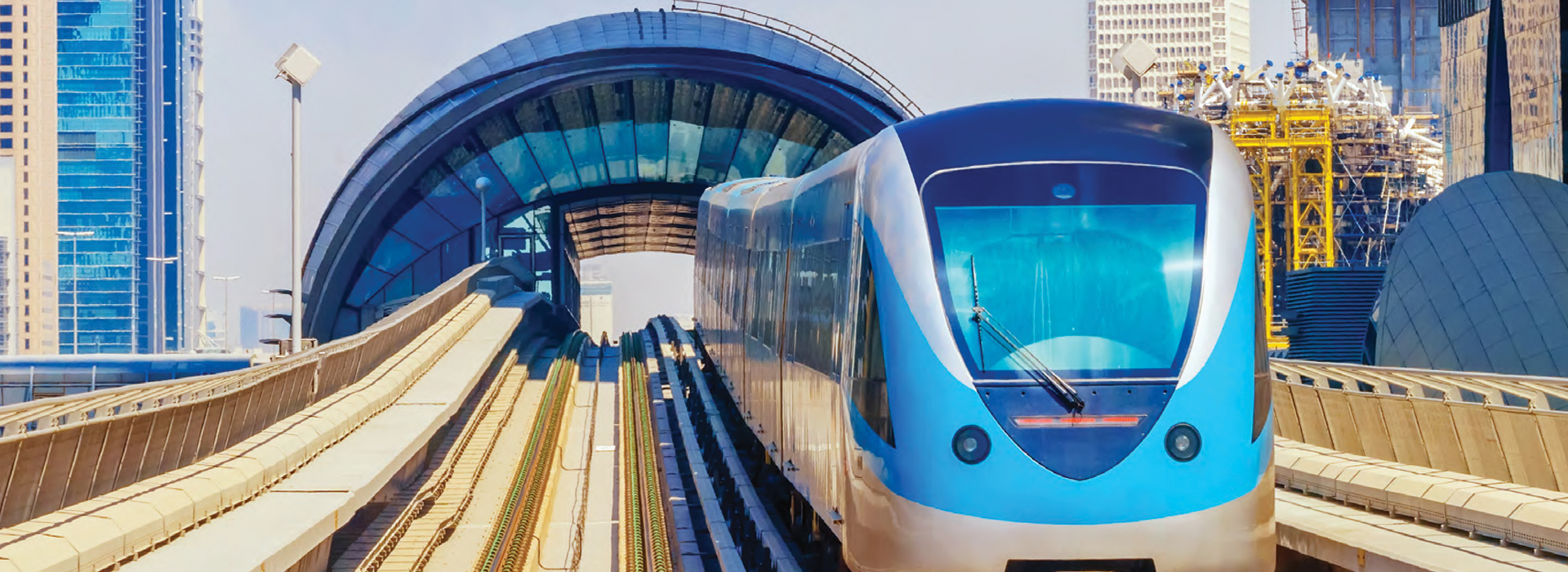Is the Rail Industry on Track to Meet its Sustainable Future?
Organisations and companies involved in the transport sector are entering a new phase of transformation. While digital and multimodal challenges continue to be strong industry drivers, the arrival of the pandemic has not only accelerated the pace of change needed but has opened up the potential for more profound change as societal and workplace transportation needs have shifted. With calls for greener transport and smarter cities becoming more urgent, the need for a more sustainable transport system is higher up the political agenda. The stakes are high. In the EU alone, transport services embrace a complex network of around 1.2 million private and public companies, employing around 11 million people. As the backbone of economies and keeping cities connected, the transport sector now needs a fresh approach. So where are the growth opportunities, and how can organizations involved in the transport sector now meet the megatrends of demand, expectation, competition, and growing complexity?

Thought leadership Sustainable transport
 |
Changes in Demand The pandemic has not only had a devastating impact on lives, but it has also had a substantial impact on the way we work, travel, and conduct business on a daily basis. With more people working from home and less business travel, companies in the transport sector must now look at new ways to replace the loss of rail and bus ticket sales. Leaner and more efficient transport systems and services will be required to reduce operational costs, and investment in greener transportation options will be needed to gain market share and appeal to consumers and businesses. As transport services transform to meet new expectations and demands, companies will need to instill more agile and flexibility into management systems and operations to adapt and gain a competitive advantage. As well as the need for updating health and safety programmes to align with operational changes made, leadership and management will need to gain the skills and knowledge to achieve the resilience required to become more sustainable. Greener and best-in-class operational systems will be a game-changer in attracting the talent needed for modern and forward-thinking companies in the transport sector. |
 |
Higher Expectations Even before the pandemic, the expectations of transport users had risen to expect higher standards. Safety, punctuality, and customer service are often cited as the three most consistent rail and bus service complaints. With consumers being given the ability to work closer to home, transport providers have to be competitive in comparison to other transport choices and demonstrate excellence in safety, punctuality, and customer service to meet higher consumer expectations. Company culture now has to move from providing a transport service where consumers have little choice to a culture that consumers choose to use. Operations management will need to be baked into the culture so it becomes part of a company’s DNA and not a separate function. The ongoing digitalisation of services to achieve operational excellence through more efficient system management and customised communication with passengers will help provide a solid platform to meet higher user expectations. |
 |
Growing risk profile As companies in the transport sector look to differentiate themselves from other transportation modes to gain market share, the ability to innovate will be vital. Integrating new technologies and services will change the company's risk profile, requiring leaders down to the shop floor to manage operational risks effectively. Empowering teams to continuously recognise, prioritise, assess, address, and report will help mitigate risk. Strengthening the culture through engagement and continuous learning, as well as focusing on the difference between actions and sustainable outcomes will build the levels of resilience needed to manage risk during periods of change. |
 |
Increased competition for capital and market access The European Green Deal places the focus on investing in sustainable companies giving access to capital that helps propel sustainable business processes and management protocols forward. Put simply, organisations and companies in the transport sector that can demonstrate sustainable operations will have the edge on companies that don’t when it comes to attracting investment. Sustainable practices in health, safety, and operational excellence, alongside state-of-the-art technology that reduces carbon footprints, will help keep companies at the forefront of investors’ minds as the move to a green deal landscape gathers pace. In addition, operational performance is now needed to achieve a competitive advantage and gain market access. Safety performance excellence will help demonstrate that transport companies walk the talk; a safe working environment evidences the ability to manage passengers. |
Over the last 3 years, dss+ in Europe has accompanied more than 15,000 managers in the rail industry sector to elevate their capabilities to better manage safety and operational excellence, delivering tangible outcomes that make operations more sustainable.
Know more about our experience in transportation here.

Lessons for a sustainable transport sector
Achieving sustainable performance in the transport sector so it is future-needs ready requires resilience and agility. So what lessons can be learned to enable the industry to adapt and move forward?
Lesson #1:
The change in demand, the adoption of new technology, and the need for transport companies to become leaner will impact the risk profile. Ensure health and safety programmes are aligned with changes being made and that digitalisation, management, and operational changes are integrated into risk management systems.
Lesson #2:
Move the business needle from tactical to soft skills. Elevate management and workforce capabilities to achieve the required resilience and ability to meet future needs to make operations more sustainable.
Lesson #3:
Based on the recent dss+ European Safety Culture Pulse Survey2, most employees have a strong safety culture. But the need to maintain the culture, continue to educate, and make it positive and inclusive is still a challenge for management. Transport companies should continue to invest in developing the safety culture and capabilities of managers and employees to reach their full business potential.
As we go forward, transport leaders must take on board these lessons and make the necessary operational and strategic changes to strengthen systems and build resilience to meet the challenges the sector now faces. As the transport sector aims to become more sustainable, the ability to capture new opportunities, gain market share, attract fresh investment and reduce environmental footprints will be essential.
Join the movement
Sustainability is imperative and has become the focus of most organisations. dss+ has supported small and large companies in the transport sector worldwide on strategies to strengthen, develop and implement sustainable strategies to keep businesses operational in a safe and performant manner. Using this experience, we have developed a '4 steps and 8 moments' plan to prepare your teams for future operational challenges in 2021 and beyond. As ESG priorities take centre stage, we invite you to join the movement on preparing your teams for future sustainability challenges together.